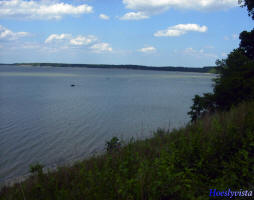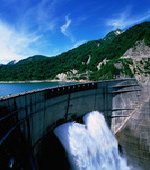 Arab Water Academy Launched
Arab Water Academy Launched
In 1955, three Arab countries suffered with water scarcity. Today, that number has risen to 11 with another seven anticipated to join the list by 2025.
With a rising population placing increased demand on a finite resource, the Arab Water Council (AWC) believes it is essential for the region to expand its understanding of the most effective water management strategies.
The Council, which launched in 2004 with 400 members from 17 Arab states, seeks to build upon its members' areas of expertise in water management, business, science and public policy by establishing the region's first water educational institution, the Arab Water Academy (AWA).
The Academy, which was officially launched on July 6, 2008 in Abu Dhabi, UAE., hich articulates, designs and implements relevant professional leadership development programs focusing on the needs of the Middle East and North African (MENA) region.
"The Academy is a significant investment in the human capital of decision makers, professionals and scientists working in the water sector and associated fields in the Arab region," says Dr. Mahmoud Abu-Zeid, as the president of the AWC.
Arab Water Academy Inaugural Session and Workshop
To further the aims
of the Academy, the AWC, the Environment
Agency-Abu Dhabi (EAD) and the
International Center for Biosaline Agriculture
(ICBA) also held a workshop on Building Human Capacity for Water
Management from July 6 through 8 in Abu Dhabi. International participants
ranging from ministers, water utility managers, academicians and international
experts discussed the Academy's focus, which would include but not be limited
to:
- Executive Leadership Training for Tomorrow's Water Management will demonstrate how to Effectively communicate and negotiate with decision makers and incorporate decision-support tools in order to prioritize water into the national agenda and to balance competition for the resource (agriculture, urban expansion, industry etc) among sectors in the short and long term.
- Water Resources Planning and Management Under Future Uncertainties will address the need for flexibility to adapt to changing circumstances; learning how to meet the challenges of future uncertainties; capacity to adapt technologies and methodologies for improved efficiency and effectiveness; and increasing awareness and engaging stakeholders.
- Water Diplomacy will focus on strategic communications and negotiations methods which water leaders can use to manage transboundary resources and compete with other sectors to bring priorities to the national agenda.
- Driving Change will introduce MENA water leaders to international and regional policies, tools and technologies that will shape their organization's water agenda in the immediate future, as well as address longer term issues.
In addition, institutional capacity will be addressed in
- Enabling Environments for Future Leaders, which will focus on developing comprehensive human resource strategies, incorporating effective incentive systems, recruitment strategies and development plans into the organizations in question, and.
- Leading the Institutional Reform Process which will enable water leaders to ensure that their institution is designed and equipped to successfully manage water resources over the long term. The program would include sustainable financing mechanisms, economics, and corporate strategy.
"It is expected that the deliberations and discussions of the workshop will lead to the development of a world-class human capacity building program for the Arab region," says Atem Ramsundersingh, acting program lead for World Bank Institute's Water Unit. "The World Bank is proud to support this much needed regional initiative."
The Council is keen to launch the first series of courses toward the end of this year.
http://go.worldbank.org/35GMFRBOK0
--
| Contact information |
Noha Gaber, Ph.D. MENA Water Facilitator, MENA Region Water Resources and Wastewater Network
(email: noha.gaber@gmail.com ; mena-water@dgroups.org) |
|---|---|
| News type | Inbrief |
| File link |
http://go.worldbank.org/35GMFRBOK0 |
| File link local |
|
| Source of information | MENA Region Water Resources and Wastewater Network |
| Subject(s) | POLICY-WATER POLICY AND WATER MANAGEMENT |
| Relation | http://siteresources.worldbank.org/WBIWATER/Resources/AWA-Workshop-Agenda.pdf |
| Geographical coverage | Algeria, Tunisia, Morocco, Libya, Mauritania, Syria, Lebanon, Egypt, Palestine, Jordan, Iraq, Saudi Arabia, Oman, Qatar, Bahrain, Yemen, Kuwait, United Arab Emirates, Sudan, Somalia, Djibouti, Comores |
| News date | 09/09/2008 |
| Working language(s) | ARABIC , ENGLISH , FRENCH |
 you are not logged in
you are not logged in





